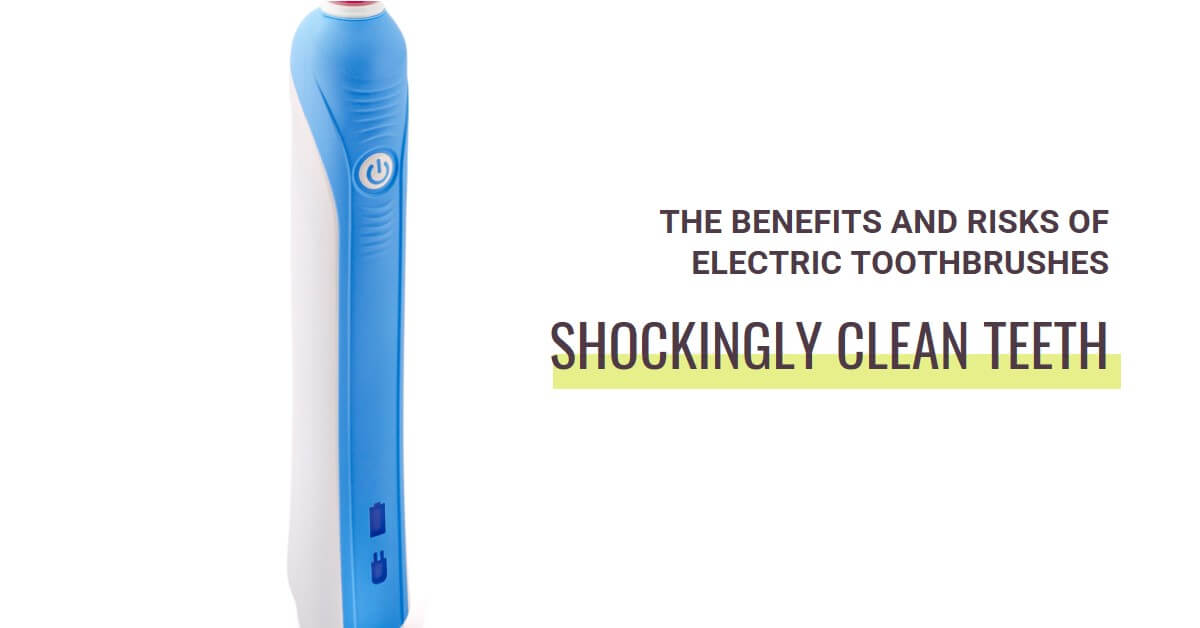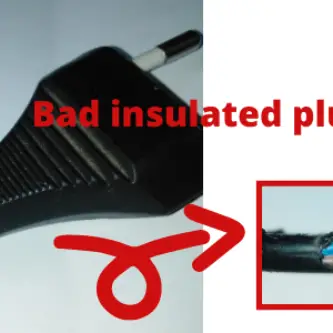Image: “Article Feature Image” by Bing is licensed under CC BY-NC-SA 4.0. Source: Bing Graphic Art. License: CC BY-NC-SA 4.0.
Electric toothbrushes have become increasingly popular due to their convenience and effectiveness in maintaining dental hygiene.
However, concerns about electrical safety have arisen, leading to questions regarding the potential risk of electrocution.
No, electric toothbrushes do not typically cause electrocution when used correctly and according to safety guidelines.
In this article, we will explore the topic and provide a comprehensive understanding of the safety of electric toothbrushes.
Understanding Electric Toothbrushes
Electric toothbrushes are powered devices designed to facilitate oral care by utilizing rotating or vibrating bristle heads.
They offer several advantages over traditional manual toothbrushes, such as improved plaque removal and enhanced gum health.
These devices are typically battery-powered or rechargeable, and their mechanisms vary among different models.
Electrical Safety of Electric Toothbrushes
Manufacturers adhere to strict safety standards and regulations to ensure the electrical safety of electric toothbrushes.
These devices are designed with specific electrical components and insulation to minimize the risk of electrical hazards.
Compliance with safety standards is crucial to prevent potential dangers associated with their usage.
Can Electric Toothbrushes Cause Electrocution?
No, electric toothbrushes do not typically cause electrocution when used correctly and according to safety guidelines.
However, it’s important to note that any electrical device, regardless of voltage, has the potential to cause harm if certain conditions are met. While the risk of electrocution from electric toothbrushes is minimal, there are a few factors that can increase the likelihood of an electrical hazard:
- Manufacturing Defects: Faulty manufacturing or substandard components can increase the risk of electrical malfunction and potential shock hazards. However, reputable manufacturers adhere to strict quality control measures to minimize such risks.
- Moisture Exposure: Electric toothbrushes are commonly used in a bathroom environment, where water and moisture are present. If the device’s electrical components are exposed to excessive moisture or water ingress, it can increase the risk of electrical shock. Therefore, it is important to avoid immersing the toothbrush in water or allowing excessive moisture to reach its internal parts.
While the likelihood of electrocution from an electric toothbrush is low, it is crucial to follow proper safety precautions to minimize any potential risks. These precautions include:
- Regular Inspection: Routinely check the toothbrush for any signs of damage, frayed wires, or loose components. If any issues are detected, discontinue use and contact the manufacturer for further guidance.
- Proper Handling: Ensure that your hands are dry when handling the electric toothbrush, particularly during charging or replacing the brush head. This helps prevent accidental contact with moisture and reduces the risk of electrical shock.
By adhering to these safety measures and using electric toothbrushes as intended, the risk of electrocution can be effectively minimized, ensuring a safe and efficient oral care experience.
Manufacturers strive to design electric toothbrushes with safety in mind, implementing measures to prevent electrocution incidents.
The devices undergo rigorous testing to ensure insulation and safety mechanisms are in place. Additionally, the low voltage used in electric toothbrushes significantly reduces the likelihood of electric shock.
Waterproof electric toothbrushes
Yes, there are waterproof electric toothbrushes available in the market. Many electric toothbrush models are specifically designed to be water-resistant or waterproof to varying degrees. While the level of waterproofing may differ among brands and models, most electric toothbrushes are designed to withstand exposure to water and can be safely used while brushing your teeth in the bathroom.
Waterproof electric toothbrushes are designed to protect the internal components from moisture and ensure safe operation even in wet environments. This feature allows for convenient usage, as it enables you to use the toothbrush while rinsing your mouth or even in the shower.
However, it’s important to note that while these toothbrushes are resistant to water, they should not be submerged in water or fully immersed for an extended period. It’s essential to follow the manufacturer’s instructions regarding water resistance and usage guidelines to maintain the integrity of the toothbrush and prevent any potential damage.
When purchasing an electric toothbrush, look for models that are specifically labeled as waterproof or water-resistant. This will ensure that the toothbrush is designed to withstand exposure to water and provide you with a safe and efficient brushing experience.
I have conducted a search to recommend a safe waterproof electric toothbrush, checkout this one below “note this is an affiliate link however I highly recommend it for you”:
Safety Precautions for Using Electric Toothbrushes
To ensure the safe usage of electric toothbrushes, it is important to follow general safety guidelines.
These include proper handling, avoiding contact with water or other liquids, and regularly inspecting the device for any signs of damage.
Cleaning and maintenance should also be performed according to the manufacturer’s instructions to prevent electrical issues.
Additional safety measures may be required in specific situations. For instance, children should be supervised while using electric toothbrushes to minimize the risk of accidents.
Individuals with certain medical conditions, such as pacemakers, should consult their healthcare providers for guidance on using electric toothbrushes safely.
Read also my article: Water in Your Fan? Here’s What to Do.
Conclusion
Electric toothbrushes are generally safe to use, with manufacturers adhering to strict safety standards and incorporating various safety features.
While there is a theoretical risk of electrocution, it is minimal if users follow proper safety precautions and handle the device as instructed.
By understanding the electrical components, design, and safety regulations, individuals can confidently enjoy the benefits of electric toothbrushes without compromising their well-being.
you work With Electricity! Don’t leave empty-handed!
Looking to stay ahead of the game in the world of electrical engineering? Subscribe to my YouTube channel and gain access to exclusive content you won’t find anywhere else!
The staff I recommend (Amazon Affiliate Links to products I believe are high quality):
- Economy 120 Volt/60Hz AC Power Source – Step-Down Voltage & Frequency Converters 1800W
- UNI-T Digital Multimeter Tester UT139C
- 50-Amp Extension Cord for RV “100ft”
- Voltage Stabilizer 110/220v
- Hair Dryer “best selling“
- TOSHIBA EM131A5C-BS Countertop Microwave Ovens
Disclaimer: This contains affiliate links to Amazon products. I may earn a commission for purchases made through these links.


